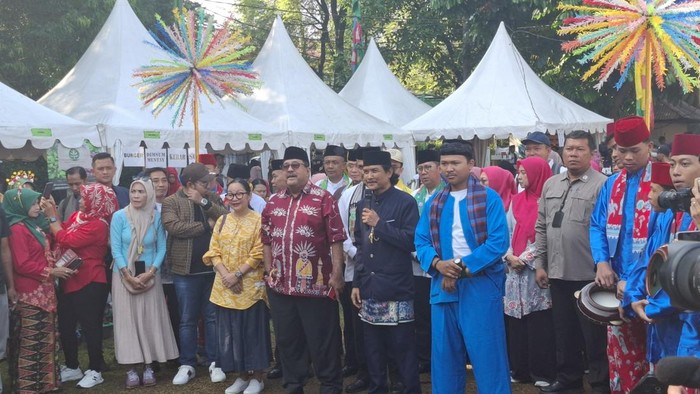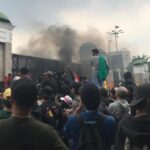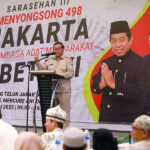Jakarta –
Deputy Governor of Jakarta Rano Karno inaugurated the Cilandak Berbudaya event in Lebak Bulus, South Jakarta, on Saturday (19/7/2025). The festival, held as part of Jakarta’s 498th anniversary celebrations, aims to foster residents’ love for Betawi culture and their city.
“From early June until July, the excitement of Jakarta’s anniversary is palpable. We want this to signify that Jakartans are people who cherish their culture,” said Rano Karno in his speech on Saturday (19/7/2025).
Rano also dismissed the notion that Betawi youth are outdated. According to him, cultural festivals like this are essential for preserving heritage while adapting to modern times.
“Who says Betawi youth are behind the times? If we don’t organize events like this annually, then we’d truly fall behind,” he stated.
He expressed gratitude to all involved parties, from city officials to local committees, for preparing the event. Rano hopes similar festivals can become regular and permanent fixtures across Jakarta.
“This should be on the annual calendar. So every district can celebrate Jakarta’s anniversary each year. It’s a chance to strengthen bonds and deepen our love for the city,” he added.
Rano also noted that such events can engage children during their school breaks. He plans to design a larger-scale festival next year to involve even more residents.
Cilandak Cultural Festival
The **Cilandak Cultural Festival** is an annual event held in Cilandak, South Jakarta, Indonesia, celebrating local arts, traditions, and community heritage. Showcasing performances like traditional music, dance, and crafts, the festival highlights the cultural diversity of Jakarta’s southern region. While its exact origins are unclear, it has grown into a significant platform for preserving and promoting local culture in an urban setting.
Lebak Bulus
Lebak Bulus is a district located in South Jakarta, Indonesia, known for its bustling urban atmosphere and transportation hub, including the Lebak Bulus Terminal and MRT station. Historically, it was a rural area that transformed significantly with Jakarta’s rapid urbanization. The name “Lebak Bulus” is derived from local terms, with “lebak” meaning lowland and “bulus” referring to a type of freshwater turtle, reflecting its past natural environment.
South Jakarta
South Jakarta is a vibrant administrative region of Indonesia’s capital, known for its mix of modern urban development, green spaces, and cultural landmarks. Historically part of the larger Jakarta area, it grew rapidly in the late 20th century as a commercial and residential hub, featuring landmarks like Pondok Indah, Kebayoran Baru, and the historic Lebak Bulus area. Today, it blends luxury malls, diplomatic quarters, and traditional markets, reflecting Jakarta’s dynamic growth.
Betawi culture
Betawi culture refers to the traditions, arts, and customs of the indigenous people of Jakarta, Indonesia, known as the Betawi people. It is a vibrant blend of Malay, Javanese, Sundanese, Chinese, Arab, and Dutch influences, reflecting Jakarta’s history as a trading hub. Key elements include traditional music (Gambang Kromong), dance (Ondel-ondel), and cuisine (such as Soto Betawi and Kerak Telor), which remain celebrated today.
Jakarta’s 498th anniversary
Jakarta’s 498th anniversary (celebrated in 2025) marks the city’s founding on June 22, 1527, when it was named *Jayakarta* (“victorious city”) after Sultan Fatahillah defeated Portuguese forces. Originally a Hindu Sunda Kelapa port, it later became a Dutch colonial hub (Batavia) and eventually Indonesia’s capital. The anniversary celebrates Jakarta’s rich history, cultural diversity, and growth into a bustling metropolis.






